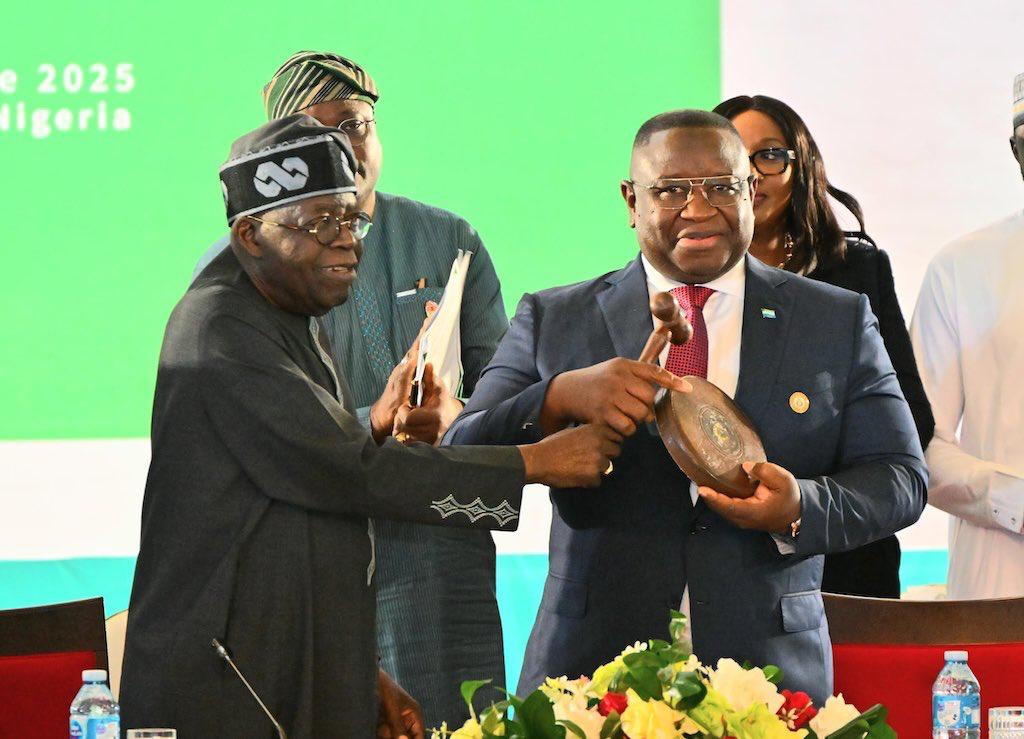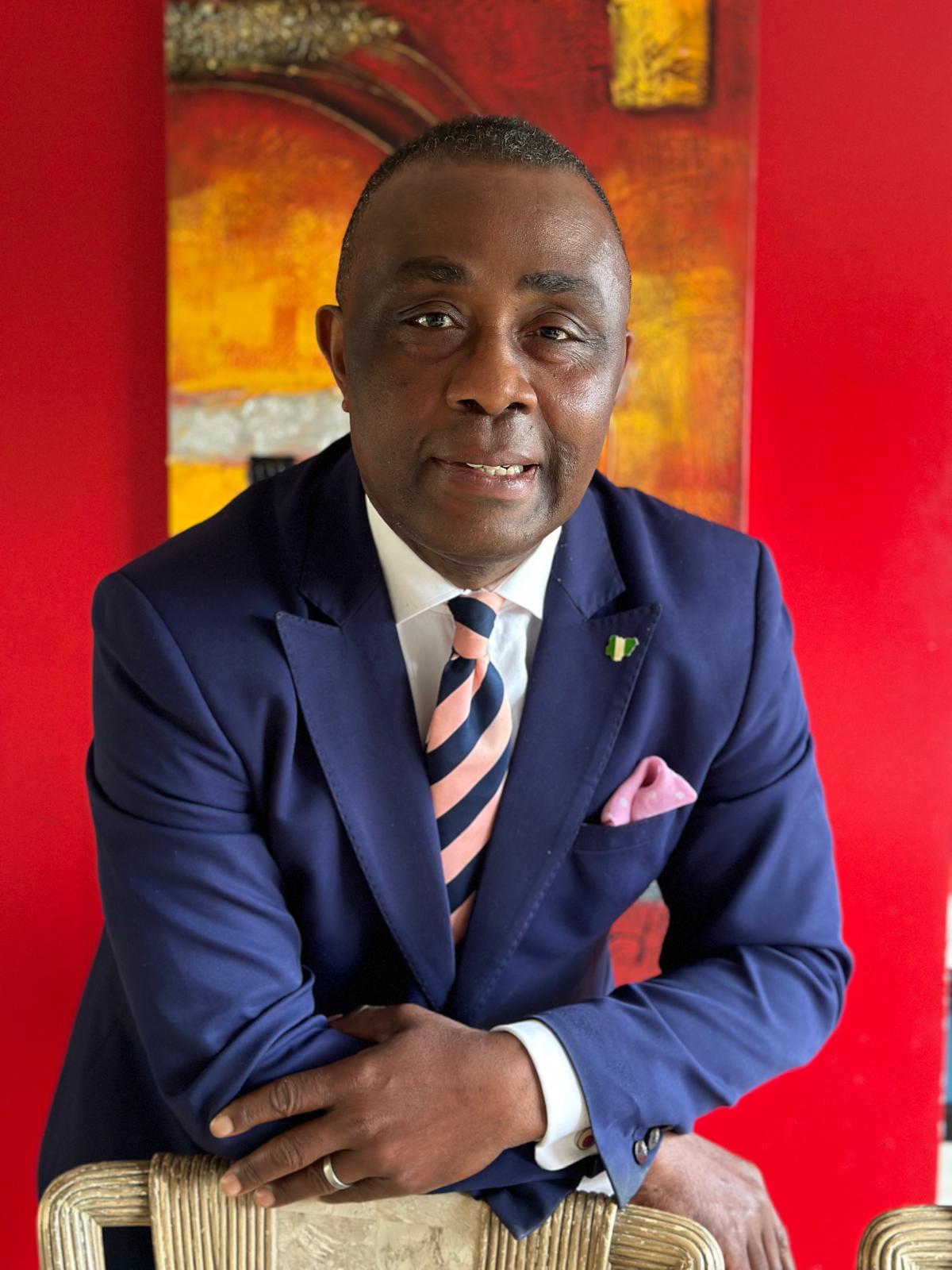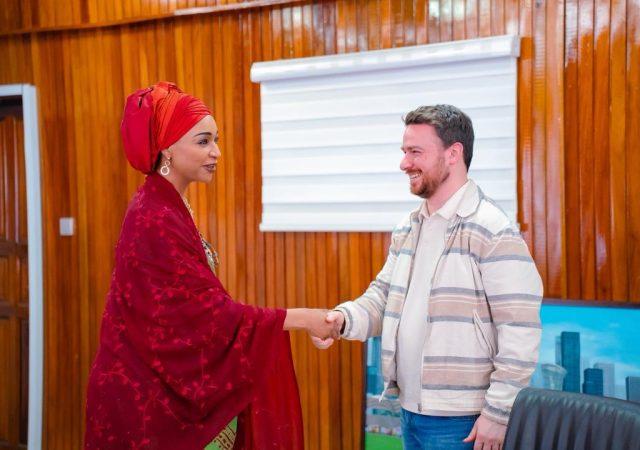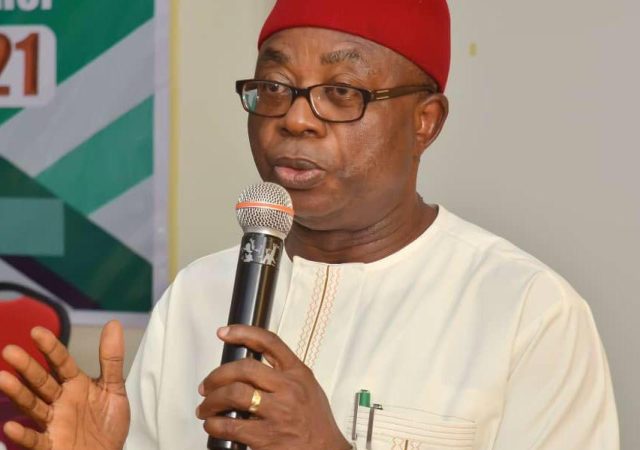
By Collins Nweke
In July 2023, President Bola Ahmed Tinubu of Nigeria assumed leadership of the Economic Community of West African States (ECOWAS). At that time, the regional bloc was already in turmoil. A surge in military coups, widening democratic backsliding, and economic vulnerabilities had placed ECOWAS on the precipice of irrelevance. His tenure, now concluded, deserves both commendation and critique. As Sierra Leone’s President Julius Maada Bio steps into the leadership, the stakes have never been higher.
President Tinubu brought energy and bold rhetoric to the ECOWAS stage. He looked to reassert the bloc’s authority, declaring that “we will not allow coup plotters to destabilize our region.” His approach to the crisis in Niger after the July 2023 coup was immediate and decisive. ECOWAS threatened military intervention. They imposed sanctions and suspended Niamey’s membership. Tinubu aimed to reaffirm ECOWAS’s commitment to democratic governance.
But the Niger standoff revealed more than Tinubu’s resolve. It exposed the limits of ECOWAS’s muscle. The military junta stood its ground. Support from key member states like Mali and Burkina Faso evaporated. The proposed military intervention lost legitimacy. What was meant to be a democratic rebuke evolved into a regional fracture. Mali, Burkina Faso, and Niger announced their withdrawal from ECOWAS, creating the Alliance of Sahel States. This came as a sub-regional counterweight.

While Tinubu’s posture sought to preserve ECOWAS’s founding ideals, his administration’s lack of nuanced diplomacy may have hardened divisions. The over-reliance on sanctions and saber-rattling, without parallel backchannel negotiations, undermined the ECOWAS ethos of solidarity.
Yet, Tinubu’s leadership was not without merit. He placed ECOWAS’s challenges at the heart of international attention and revitalized conversations on institutional reform. Under his chairmanship, conversations around economic integration, regional infrastructure, and counterterrorism gained renewed traction, even if not fully realized.
Sierra Leone’s President Julius Maada Bio takes the reins at a delicate moment. A former military officer turned democratically elected leader, Bio embodies the transformation ECOWAS looks to champion. His relatively stable governance and post-civil war peace-building credentials offer him the moral authority to broker dialogue across hardened lines.
But Bio inherits four enormous challenges:
Mending the Fractured Bloc: With three core Sahel countries out, Bio must find a path back to inclusivity. Will he engage them diplomatically? Can he reconcile ECOWAS’s democracy-first stance with the practical need for regional unity?
Security in the Sahel: Terrorist groups exploit the governance vacuum in the region. Without coordination between ECOWAS and the Sahel states, trans-border threats will escalate.
Restoring Credibility: ECOWAS is seen by some as an elite club protecting incumbents. Bio must rebuild trust among citizens by ensuring ECOWAS is not just about leaders, but about the led, the people.
Economic Integration and Youth Empowerment: The AfCFTA opens possibilities for intra-African trade, but regional economic corridors are still weak. Bio’s leadership must focus on infrastructure, digital connectivity, and youth employment, especially given ECOWAS’s youthful population.
Bio is expected to lead with more consultation and less coercion. His diplomatic style, less confrontational than Tinubu’s, may allow for quiet gains. His presidency in Sierra Leone, while not free of controversy, has seen electoral reforms. It has also included education investments and some civil-military balance. These experiences position him to appreciate the complexity of transitional governance in fragile states.
President Tinubu leaves behind a legacy of urgency and assertion. These traits are not misplaced in turbulent times. He was determined to assert ECOWAS as a bloc intolerant of unconstitutional changes of government. He was also willing to protect its democratic space at all costs. Nonetheless, this bold stance yielded mixed results and left several critical initiatives unfinished. These unresolved tasks now become the burden, but also opportunity of President Bio’s tenure.
Chief among Tinubu’s unfinished business is the reintegration of the breakaway Sahel trio: Mali, Burkina Faso, and Niger. While Tinubu drew a red line at military takeovers, the absence of a parallel reconciliation framework widened the rift. ECOWAS can’t afford a permanently fractured bloc. Tinubu aimed to protect the principle of democratic governance. The Bio doctrine must repair the broken regional fabric. He must bring all stakeholders back to the table. This does not presuppose endorsing coups. It requires charting a path to civilian transitions, even if phased and negotiated.
Another critical initiative that remained incomplete under Tinubu was the enhancement of ECOWAS’s conflict prevention and early warning mechanisms. Tinubu recognized the security threats metastasizing across West Africa. This is clear in the extremist violence in the Sahel and political instability in coastal states. Yet, his tenure focused more on political posturing than operationalising preventive diplomacy. President Bio must now institutionalize these reforms. First, empower the ECOWAS standby force. Second, strengthen regional intelligence-sharing. Third, build the civilian-military cooperation necessary to stabilize the region. Security, after all, is not achieved through threats but through trust, collaboration, and foresight.
Tinubu also started dialogues around regional economic integration and youth employment. It sadly gained little traction beyond conferences and communiqués. The ECOWAS Vision 2050 agenda remains largely aspirational. It is focused on shared prosperity. The agenda emphasizes free movement of people and goods and regional infrastructure. Bio needs no extra rhetoric. Instead, he must convert the rhetoric into reality by fast-tracking the ECOWAS Single Currency roadmap. He must work on ending cross-border trade barriers. This is without prejudice to leveraging digital economies to empower West Africa’s burgeoning youth population.
In short, ECOWAS now requires healing, humility, and innovation. The healing must be political: mending relationships and reimagining unity. The humility must be institutional: listening to civil society and grassroots voices long excluded from the ECOWAS conversation. And the innovation must be economic: shifting from reactive interventions to proactive, people-centered development strategies.
President Bio must embrace this moment with the patience of a mediator and the vision of a reformer. He should understand that he inherits not just a chair, but a regional soul in crisis. Continuity demands that the work begun by his predecessor not be abandoned but evolved.
He should deploy fresh strategies, inclusive dialogue, and courageous compromise. Indeed, as the old adage goes, government is a continuum. The strength of ECOWAS is rooted in the shared commitment of each leader. Success requires finishing what the last began rather than the brilliance of any one leader. This does not prevent beginning anew where necessary, but always in service of the West African people.
Collins Nweke is a former Green Councillor at Ostend City Council, Belgium, where he served three consecutive terms until December 2024. He is a Fellow of both the Chartered Institute of Public Management of Nigeria and the Institute of Management Consultants. He is also a Distinguished Fellow of the International Association of Research Scholars and Administrators, where he serves on its Governing Council. He writes from Brussels, Belgium.









